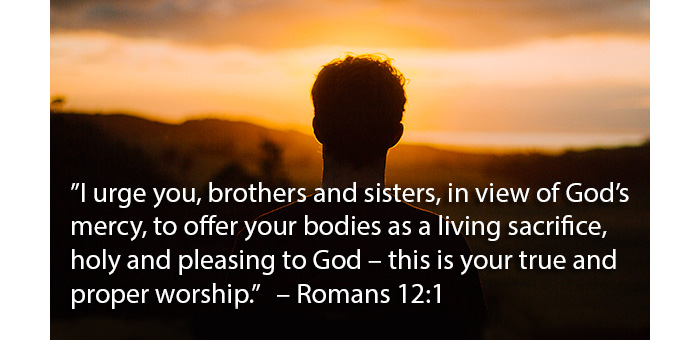I appeal to you by the mercy of God (Romans 12:1). This appeal is made by Paul, or rather, it is made by God through Paul, because of God’s desire to be loved rather than feared, to be a father rather than a Lord. God appeals to us in his mercy to avoid having to punish us in his severity.
Christ Draws Us into His Heart
Listen to the Lord’s appeal: “In me, I want you to see your own body, your members, your heart, your bones, your blood. You may fear what is divine, but why not love what is human? You may run away from me as the Lord, but why not run to me as your father? Perhaps you are filled with shame for causing my bitter passion.
Do not be afraid. This cross inflicts a mortal injury, not on me, but on death. These nails no longer pain me, but only deepen your love for me. I do not cry out because of these wounds, but through them I draw you into my heart. My body was stretched on the cross as a symbol, not of how much I suffered, but of my all-embracing love.
I count it no less to shed my blood: it is the price I have paid for your ransom. Come, then, return to me and learn to know me as your father, who repays good for evil, love for injury, and boundless charity for piercing wounds.”
A Living Sacrifice – Sharers in Christ’s Priesthood
Listen now to what the Apostle urges us to do. I appeal to you, he says, to present your bodies as a living sacrifice [Romans 12:1].
By this exhortation of his, Paul has raised all people to priestly status.
How marvelous is the priesthood of the Christian, for he is both the victim that is offered on his own behalf, and the priest who makes the offering. He does not need to go beyond himself to seek what he is to immolate to God: with himself and in himself he brings the sacrifice he is to offer God for himself. The victim remains and the priest remains, always one and the same. Immolated, the victim still lives: the priest who immolates cannot kill. Truly it is an amazing sacrifice in which a body is offered without being slain and blood is offered without being shed.
The Apostle says:
I appeal to you by the mercy of God to present your bodies as a living sacrifice.
Romans 12:1
Brethren, this sacrifice follows the pattern of Christ’s sacrifice by which he gave his body as a living immolation for the life of the world. He really made his body a living sacrifice, because, though slain, he continues to live. In such a victim death receives its ransom, but the victim remains alive. Death itself suffers the punishment. This is why death for the martyrs is actually a birth, and their end a beginning. Their execution is the door to life, and those who were thought to have been blotted out from the earth shine brilliantly in heaven.
Let your Heart be an Altar
Paul says: I appeal to you by the mercy of God to present your bodies as a sacrifice, living and holy. The prophet said the same thing: Sacrifice and offering you did not desire, but you have prepared a body for me.
Each of us is called to be both a sacrifice to God and his priest. Do not forfeit what divine authority confers on you. Put on the garment of holiness, gird yourself with the belt of chastity. Let Christ be your helmet, let the cross on your forehead be your unfailing protection. Your breastplate should be the knowledge of God that he himself has given you. Keep burning continually the sweet smelling incense of prayer. Take up the sword of the Spirit. Let your heart be an altar. Then, with full confidence in God, present your body for sacrifice.
God desires not death, but faith; God thirsts not for blood, but for self-surrender; God is appeased not by slaughter, but by the offering of your free will.
Excerpt from a sermon of St. Peter Chrysologus on Romans 12, source: Sermon 108, PL 52, 499-500.
Top image credit: Photo of a man facing beautiful sunset by Tim Marshall, from Uplash.com. Free image usuage granted.
Peter Chrysologus (380-450 AD) was a deacon and a monk who became the bishop of Ravena (the capital of the Western empire) in 430 AD. He testified courageously to Christ’s full humanity and divinity to combat paganism and doctrinal confusion and heresy (Arianism and Monophysitism). His principal weapon for overcoming ignorance and error was the concise and inspiring homilies based on the Biblical texts which he delivered to the people every Sunday. He used simple and clear language in explaining the truths of the Christian faith expressed in the Scriptures and Apostles Creed. He kept his sermons short because he was afraid of fatiguing the attention of his hearers. He was given the title “Chrysologus” which means “Golden-worded” in Greek.



